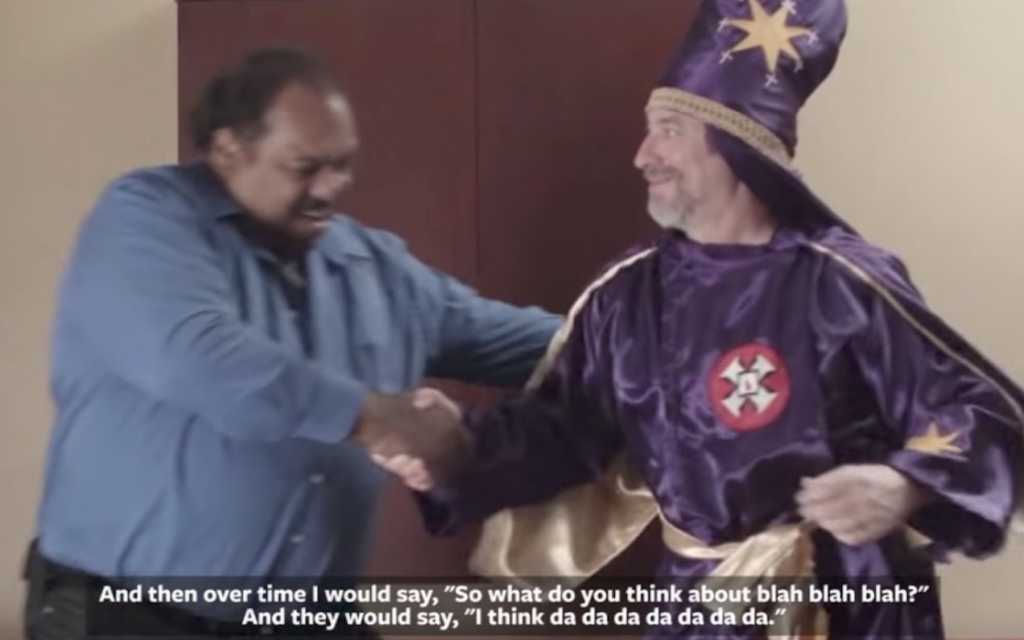If I told you a black man got 25 members of the Klu Klux Klan to quit and never return, would you believe me?
That’s exactly what musician Daryl Davis has done over the last several decades. Davis documented his incredible story in a book and a documentary as well. It started when he was a black member of a country music band that began playing mostly white venues.
Davis began having conversations with some of the white patrons. One of the first men he spoke with told him he’d never had a drink with a black man before. When Davis inquired why that was, the man admitted he was a member of the KKK.
Though Davis has spent time with legends like Chuck Berry, Dolly Parton, Joe Frazier and more, it’s his time with KKK members that has made the most impact on the world. He even has a photo of himself with a hooded Klansman on his wall, right next to those music legends.
“Country music had made a resurgence in this country…I was the…only black in many of the places where we played,” Davis said.
After that first encounter with a Klan member, Davis began having regular conversations with them. He took a curious approach, asking a lot of questions, but never being asked for his opinion back on anything.
But it was this friendly, non-angry approach that gave him an opening to actually befriend the men who appeared — at first glance — to hate him because of his skin color. After spending some time with them, things began to change. Eventually, the KKK members did start to ask his opinion about things — and that’s when the lightbulbs began to appear in their minds.
Over the years, Davis’ friendships has convinced 25 men to leave the KKK — and many of them gave him their robes and hoods when they left. He keeps them as souvenirs, records of battles he won — though his intention was never to convert them int he first place. It was that human connection that showed them the light.
Though Davis has been criticized by some in the black community, he continues his mission.
“You need a multi-prong attack…from the front, from the side, from the back, from the rear window, whatever,” Davis said of how to topple white supremacy. “You don’t change the system without changing the people behind the system.”
This gets to part of my point in my essay earlier this week on how to approach events like Charlottesville. I hope more people will take Davis’ approach:


